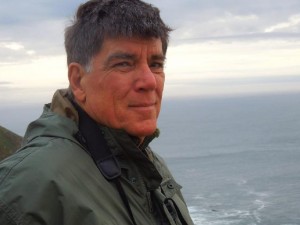Billy Wingfield, C’66, wanted to express his support for Sewanee and for the vice-chancellor, which inspired his gift to the VC’s discretionary fund. This Sewanee French major found himself at the periphery of the important social movements of the 20th century, experiences that influenced his current giving to Sewanee.
Wingfield's Life and Philanthropy Reflect Lessons Learned at Sewanee
 Sometimes, a few moments in college can plant seeds that may take root years later. For Dr. William (Billy) Wingfield, C’66, the author of one such planter was Scott Bates, a French professor (Wingfield’s major) and noted civil rights advocate. Wingfield took classes from Bates, and he observed his passion for justice.
Sometimes, a few moments in college can plant seeds that may take root years later. For Dr. William (Billy) Wingfield, C’66, the author of one such planter was Scott Bates, a French professor (Wingfield’s major) and noted civil rights advocate. Wingfield took classes from Bates, and he observed his passion for justice.
When Wingfield listened to remarks by Vice-Chancellor Reuben Brigety at the opening of the Easter Semester, he was moved to make a gift to the Vice-Chancellor's Discretionary Fund to demonstrate his support for Sewanee's new leader. With a gift to the Vice-Chancellor’s Discretionary Fund, Wingfield staked out a position of support for Brigety’s administration and personal success.
While Wingfield’s gift was the largest he had made to Sewanee over his lifetime of faithful giving to the Sewanee Fund, it was not the first to be in support of the vice-chancellor’s agenda. In December, he also made a year-end gift in support of Diversity, Equity, and Inclusion.
An internist in Charleston, South Carolina, Wingfield’s interest in social justice had been piqued years earlier by Scott Bates. Wingfield knew of Bates’s interest in social justice and his work at the Highlander Center, a prominent training center for the Civil Rights Movement in Monteagle. “Dr. Bates was always on the leading edge of working for justice for minorities,” says Wingfield. “When I was at Sewanee, he often came to Johns Island, South Carolina, next to Charleston, to work toward racial justice for rural Blacks in the Carolina Lowcountry.”
Then, in medical school at the Medical University of South Carolina, Wingfield found himself adjacent to another social movement. Hospital workers at the facility associated with the medical school had determined to demonstrate to advocate for better wages and working conditions. “I knew and liked some of the workers, and I decided to support them,” remembers Wingfield. “The Southern Christian Leadership Conference—its first president being Martin Luther King—got involved and I participated in the workers’ march in support of their goals of better wages and work conditions. Ralph Abernathy was involved, as were Coretta Scott King, Andrew Young, Julian Bond and other Southern Black leaders in the fight for racial justice.”
The upshot of that incident was being called into the president’s office. “The president of the Medical College, Dr. McCord, called me into his office with instructions to ‘first, get a haircut’ and ‘second, if I see your name associated with this hospital strike again, you are out of this medical university.’”
After a long and productive medical career, Wingfield is devoting himself to the study of and photography of birds, another interest he shares with his Sewanee professor. “Dr. Bates was an avid birder and posted updates on the recently observed birds of Sewanee list in Science Hall,” Wingfield remembers, calling up a picture of Bates, binoculars in hand, searching the nearby trees during a football game. An avid bird photographer, he travels (when there is no active global pandemic) around the world in pursuit of great photography.
Wingfield does not present himself as a great photographer or great humanist, but as a man whose liberal arts education prepared him broadly for success in his chosen profession and an abiding interest in the well-being of others.
To make a gift to the Vice-Chancellor's discretionary fund or to DEI Initiatives, click here.

